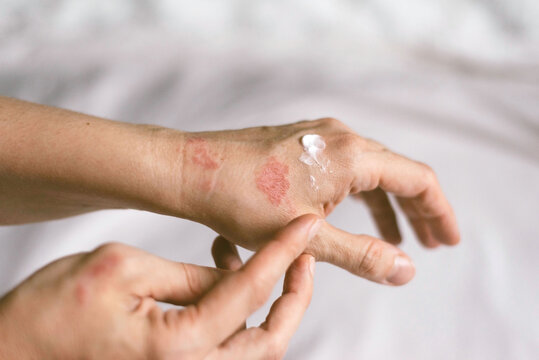Misinformation about skin diseases leads to fear, stigma, and emotional distress. Many people living with skin diseases in Dubai(أمراض الجلد في دبي) face social misconceptions, especially the belief that all skin conditions are contagious. This article aims to clarify the truth, reduce stigma, and educate the public about the wide variety of skin diseases, most of which are not infectious and can be managed effectively with proper care.
Understanding the Nature of Skin Conditions:
Skin conditions vary greatly in type, cause, and severity. Some are genetic, some autoimmune, others are due to allergies or environmental triggers. While a small number of conditions are contagious—like fungal infections, scabies, or certain bacterial rashes—the majority are not. Conditions such as eczema, psoriasis, vitiligo, and rosacea are not spread from person to person and pose no public health risk in social settings.
Common Misconceptions About Contagion:
One of the biggest myths surrounding skin conditions is that they can be spread through casual contact. This has led to unfair social treatment of individuals with visible skin problems. Children with eczema, adults with psoriasis, or people with vitiligo are often isolated, despite their conditions being completely non-transmissible. These misconceptions not only harm social confidence but also prevent people from seeking timely dermatological help.
Which Skin Conditions Are Contagious:
It’s important to distinguish between contagious and non-contagious skin issues. Contagious skin conditions include:
- Impetigo: A bacterial infection usually seen in children
- Scabies: Caused by skin mites and spread through close contact
- Ringworm: A fungal infection affecting various parts of the body
- Herpes Simplex Virus: Transmitted through direct skin or oral contact
These conditions require proper hygiene, timely treatment, and in some cases, temporary isolation to prevent spreading. In contrast, skin diseases in Dubai like acne, rosacea, or melasma do not pose any such risks and are primarily influenced by environment, genetics, and skincare routines.
What Causes Non-Contagious Skin Conditions:
Non-contagious skin conditions are caused by a wide array of internal and external factors. Eczema and psoriasis, for example, are chronic inflammatory diseases triggered by immune system responses. Vitiligo occurs when pigment-producing cells stop functioning. Acne results from hormonal imbalances and clogged pores. These conditions may flare up under stress, heat, or allergic reactions—factors especially relevant for residents managing skin diseases in Dubai given the unique climate and lifestyle.
The Role of Dubai’s Environment:
Dubai’s weather, characterized by heat, dryness, and occasional sandstorms, plays a significant role in exacerbating certain skin diseases. High temperatures can lead to excessive sweating, dehydration, and dust accumulation on the skin, making conditions like eczema or folliculitis worse. However, none of these climate-related conditions are contagious. Understanding this helps reduce fear and supports compassionate behavior toward those living with visible skin symptoms.
Social Stigma and Its Psychological Impact:
People with chronic skin conditions often deal with more than just physical symptoms. The psychological effects of being perceived as “contagious” can include anxiety, depression, and low self-esteem. Children may face bullying at school, and adults may experience social exclusion or workplace bias. Educating the public about the non-contagious nature of most skin conditions fosters empathy and allows individuals with skin diseases to live without unnecessary shame or fear.
How to Talk About Skin Conditions Respectfully:
Being sensitive in language and attitude can make a huge difference for those managing visible skin issues. Avoid asking intrusive questions or making assumptions about hygiene or lifestyle. If someone opens up about their condition, listen without judgment. Promoting accurate knowledge through respectful conversations helps normalize skin diseases(أمراض الجلد) and reduces the misinformation that fuels stigma. This cultural shift is especially important in urban environments like Dubai, where diverse populations live in close proximity.
Supporting Loved Ones with Skin Conditions:
Support from friends and family plays a crucial role in how individuals cope with chronic skin problems. Whether it’s accompanying a loved one to a dermatology appointment, helping them find skincare products, or simply offering emotional reassurance, compassion goes a long way. Recognizing that most skin diseases are not contagious but rather chronic conditions needing management can help caregivers and peers provide better support.
Final Thoughts:
The belief that all skin conditions are contagious is not only false—it’s harmful. Most skin diseases in Dubai, such as eczema, psoriasis, or acne, are non-contagious and stem from factors like genetics, immunity, and climate. Educating the community, reducing stigma, and fostering understanding are essential to creating a more compassionate environment for those affected. By replacing myths with facts, we empower people to seek help, feel accepted, and live confidently with their skin.





